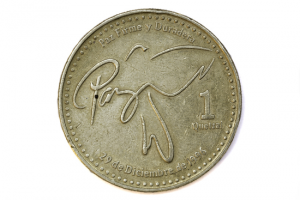
Estefanía Luján Padilla
Estefanía Luján has a degree in Economics with a specialization in Finance from the Francisco Marroquín University. She has attended to summer seminars from the Institute Juan de Mariana and from the Institute for Humane Studies. At Universidad Francisco Marroquín, she was a teacher assistant of courses from Henry Hazlitt Center as well as from the School of Economics, where she is also the Directors Assistant of Economics.
With the persistence of the new president of the United States to build a wall and his expectation to make Mexicans assume the cost, new creative initiatives to find a way to make them pay it are starting to emerge.
Click here to continue readingMarch is almost here and Guatemala’s credit card law will soon come into effect. The country’s banks have already been making the necessary changes to comply with the law to prevent delays. The law’s main objective is to end abuses on by the banks when it comes to collecting payment (interest rates and abusive collection practices). However, the law will have negative effects that have mostly gone unnoticed: a price increase in other financial services, and a displacement towards an informal and unregulated market.
Click here to continue readingSince January 25, there has been constant speculation about the possible devaluation of the quetzal (Q). After Julio Héctor Estrada, who is part of the Monetary Board, was appointed Minister of Finance warning signals about the currency’s devaluation set off in the country’s financial sector. Most alarming, however, is how Guatemala’s Association of Exporters (Agexport)—with whom the minister has close ties—is pressing for an exchange rate of Q8 to the dollar. According to the union, there is an overvaluation of the quetzal; in other words, an undervaluation of the dollar in the country.
Click here to continue readingGet our free exclusive report on our unique methodology to predict recessions





